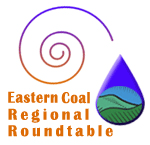Charleston Gazette
July 15, 2009
Gas drilling update: DEP proposing tougher rules
By Ken Ward Jr., Staff writer
It’s been a while since we updated readers on the growing concerns about pollution from oil and gas drilling operations in West Virginia (See Gas drilling damage I, Gas drilling damage II and Gas drilling damage III).
But last month, the state Department of Environmental Protection proposed some rule changes that are at least a beginning step toward more closely regulating the biggest concern: Water pollution from the “pit fluids,” the huge amounts of water used to fracture rock and release gas, especially from the wells drilling into the Marcellus Shale formation.
The comment period on the DEP proposal ended last night with a public hearing. I’m told that a ton of industry lobbyists attended, but none of them got up to make public statements. Behind the scenes, though, the industry is strongly opposing the rule changes. Perhaps that will come out today, when the issue is scheduled to be discussed during legislative interim meetings (1 p.m., House Government Organization Committee Room, 215 E).
Among the more significant changes proposed by DEP are:
– Requiring all pits used to store contaminated water from drilling to have synthetic liners to prevent seepage or leaks.
– Forcing operators to remove all solid wastes, including liners, during reclamation of pits and impoundments.
– Adding new design and construction standards for these pits.
– Requiring inspection of the pits by a registered professional engineer.
Don Garvin, lead lobbyist for the West Virginia Environmental Council, said today:
It has been more than 25 years since any significant changes were made to West Virginia’s drilling rules. The state’s regulation of oil and gas well drilling already has many problems, and new exploration using new processes, such as horizontal drilling and large volume fracturing, is creating new kinds of problems that need to be addressed, as well as the need for additional resources to address them.
In Washington, efforts to push for federal regulation of water pollution from gas drilling’s hydraulic fracturing aren’t going so well. ProPublica’s Abrahm Lustgarten, who has been all over this story, reported on Monday that:
Legislators who’ve been pushing a bill to regulate a controversial natural gas drilling process are now calling for further scientific study, a change in tack made under intense lobbying pressure and after a personal request from Colorado’s Democratic governor.
If the lawmakers wait for the results of a study, the bill is unlikely to move forward any time soon.
Subscribe to:
Post Comments (Atom)

No comments:
Post a Comment